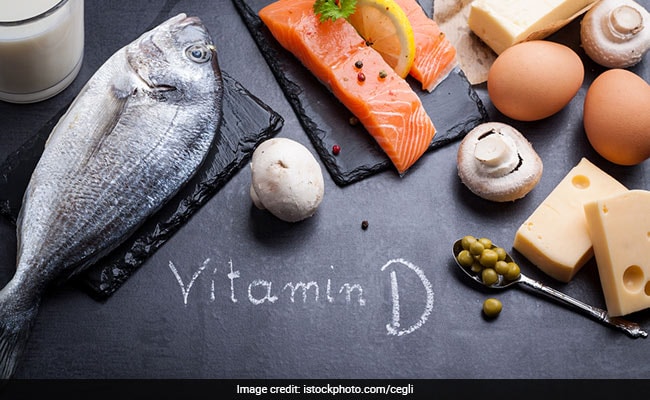
Vitamin D is an extremely important vitamin that is known to have powerful effects on several systems throughout our body. Critical to our dental, bone and overall health, vitamin D is responsible for the absorption of crucial minerals like calcium, magnesium and phosphate, and other biological effects. Also known as sunshine vitamin, vitamin D is produced in your skin in response to sunlight. It is a fat-soluble vitamin that includes vitamins D-1, D-2 and D-3. This vitamin is most vital for facilitating normal immune system function and is important for normal growth and development of bones and teeth, as well as improved resistance against diseases. The sunshine vitamin is known to boost weight loss, reduce symptoms of depression, and keeps the body's functionality in check. However, if adequate vitamin D is not provided to the body, its deficiency can wreak havoc on your health. We tell you some important signs and symptoms of vitamin D deficiency that you need to look out for.
(Also Read: Benefits Of Vitamin D: Here's Why You Should Load Up On The Sunshine Vitamin)
Vitamin D Deficiency: Signs And symptoms
Vitamin D deficiency is one of the most common health problems faced. According to the NCBI, vitamin D deficiency affects almost 50 percent of the population worldwide. An average daily intake of 10-20 micrograms is adequate for individuals, as suggested by the US Institute of Medicine.
(Also Read: Know The Stark Differences Between Calcium And Vitamin D)
There are many factors that can lead to vitamin D deficiency:
- Using excess of sunscreen and blocking the sunlight to reach your skin.
- Residing in an area that has high percentage of pollution.
- Spending more time indoors.
- Not eating vitamin D-rich foods.
- Living in buildings that block sunlight.
(Also Read: The Vitamin D Dose: Why is it Important for the Body?)
 Vitamin D deficiency is one of the most common deficiencies
Vitamin D deficiency is one of the most common deficienciesSigns and symptoms of vitamin D deficiency
- Tiredness, aches and pain and general sense of not feeling too well.
- Severe pain in the bone and muscles or general weakness that may cause difficulty in climbing the stairs or getting up from the floor or a low-chair or something as simple as walking till a stretch.
- In severe cases, fracture, especially in your thighs, pelvis and hips.
- Excessive hair loss.
- Wounds that take a lot of time to heal.
- Depression symptoms.
- Having digestive issues.
As per the Vitamin D Council, symptoms of vitamin D deficiency can be subtle or even nonexistent in the early stages. You may experience some tiredness and general aches and pains, but these symptoms are easy to dismiss because there are many things that cause them.
(Also Read: 5 Things You Must Do To Prevent Vitamin D Deficiency)
Vitamin D-Rich Foods
While one can get vitamin D by being exposed to sunlight, there are certain foods that are said to be rich in vitamin D and calcium. We list out some essential vitamin D-rich foods that you should definitely add in your diet.
| Vitamin D Rich Foods | ||
|---|---|---|
| Fatty fish like tuna, mackerel, salmon | Egg yolks | Soy milk |
| Dairy products milk, curd, et al | Mushrooms | cereals |
| Cheese | Orange juice | Cocoa |
Make sure you have enough vitamin D-rich foods in order to lead a healthy life. Consult a doctor if you see these symptoms to ensure proper medications and advice.
Track Latest News Live on NDTV.com and get news updates from India and around the world

